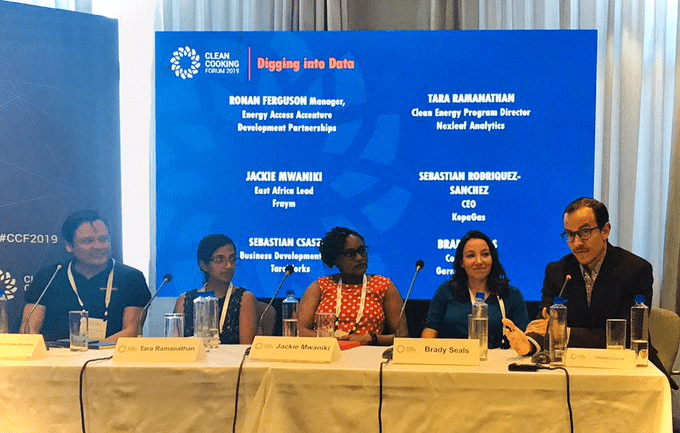
Search
The clean cooking sector has traditionally been overlooked and underfunded but recent financial commitments driven by the World Bank are expected to make available $500 million to help ensure universal access to clean cooking by 2030. This was one of my takeaways from the Clean Cooking Forum 2019 hosted by the Clean Cooking Alliance, which took place this November a few kilometers from my home in Nairobi, Kenya.
A few days before the start of the Clean Cooking Forum, I read over the key takeaways from the 2018 version of the event to see what new insights I might glean from this 2019 version that was themed around “Investment, Innovation and Impact.” I’ve summarized my observations in more detail from the event that brought together more than 550 participants from 50 countries:
You would think that a global issue like indoor air pollution, which kills more than 4.3 million people worldwide (more deaths than AIDS, malaria and tuberculosis combined) and causes unthinkable environmental destruction, would get every nation to act and support clean cooking initiatives. Wrong!
The clean cooking sector is often “an orphan sector – everyone’s second priority…it’s an invisible sector as those affected [by the lack of clean cooking means] are often women, rural, poor and children. If current trends continue, 2.2 billion people will still not have access to modern energy cooking services by 2030,” according to Kandeh Yumkella, the former United Nations Under-Secretary General who made these comments at the Clean Cooking Forum’s opening plenary session.
However, there is great hope on the horizon in the form of increased support arising from the World Bank’s Clean Cooking Fund launched in September, 2019. The fund will make available $500 million to help ensure there is universal access to clean cooking by 2030. Additionally, I was very encouraged to hear that the Clean Cooking Alliance along with other partners have launched an advocacy program called “Clean Cooking Is” to leverage the power of social media to help raise awareness for the clean cooking sector. Participants of the two-day Clean Cooking Forum in Nairobi had the opportunity to record short video messages indicating what clean cooking means to them and share them on their social networks with the hashtag #CleanCookingIs.
I also had the privilege of speaking on a Clean Cooking Forum panel entitled “Digging into Data – Accelerating Market Growth,” during the forum’s second day. The discussion focused around how clean cooking companies can use data and analytics to accelerate growth – even in the last mile.
The moderator, Ronan Ferguson of Accenture Development Partnerships stated that “95% of the data that exists in the world today was generated in the last two years….This represents an explosion of data…by 2030, it is expected that there will be 125 billion IoT enabled devices globally: that’s almost 15 devices for every person that will be on the planet by then.”

Panel topics ranged from the ethics of data collection, to partnerships that can be formed, types of data necessary to drive investment and how data can be harnessed to understand purchasing preferences to help drive product design and distribution.
I found it interesting that around the type of data required to drive investment to the clean cooking sector, a point was made that initially the sector spent a lot of money on health studies to prove impact before proving the adoption of clean cooking solutions. Adoption metrics should be prioritized as the first step for any clean cooking organization looking for investments before considering investing in air quality or health impact studies.
One piece of advice that was shared by Tara Ramanathan, Program Director, Clean Energy for Nexleaf Analytics, really struck me: Even after a long day at the office, everyone must constantly be questioning the data, and only this practice will ultimately lead to extracting the right insights from the data the organization has collected.
Once an organization builds a data-oriented culture, it needs to make sure that every single person (every person!) in the company, as Tara simply puts it “questions the data that they see”.
POST TOPICS
Sign up to receive emails with TaroWorks news, industry trends and best practices.
TaroWorks, a Grameen Foundation company.
Site by V+V